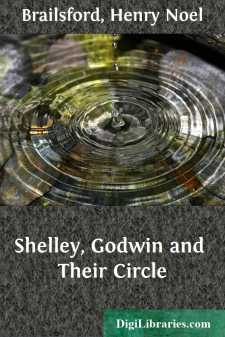Categories
- Antiques & Collectibles 13
- Architecture 36
- Art 48
- Bibles 22
- Biography & Autobiography 813
- Body, Mind & Spirit 142
- Business & Economics 28
- Children's Books 15
- Children's Fiction 12
- Computers 4
- Cooking 94
- Crafts & Hobbies 4
- Drama 346
- Education 46
- Family & Relationships 57
- Fiction 11828
- Games 19
- Gardening 17
- Health & Fitness 34
- History 1377
- House & Home 1
- Humor 147
- Juvenile Fiction 1873
- Juvenile Nonfiction 202
- Language Arts & Disciplines 88
- Law 16
- Literary Collections 686
- Literary Criticism 179
- Mathematics 13
- Medical 41
- Music 40
- Nature 179
- Non-Classifiable 1768
- Performing Arts 7
- Periodicals 1453
- Philosophy 64
- Photography 2
- Poetry 896
- Political Science 203
- Psychology 42
- Reference 154
- Religion 513
- Science 126
- Self-Help 84
- Social Science 81
- Sports & Recreation 34
- Study Aids 3
- Technology & Engineering 59
- Transportation 23
- Travel 463
- True Crime 29
Shelley, Godwin and Their Circle
Categories:
Description:
Excerpt
CHAPTER I
THE FRENCH REVOLUTION IN ENGLAND
The history of the French Revolution in England begins with a sermon and ends with a poem. Between that famous discourse by Dr. Richard Price on the love of our country, delivered in the first excitement that followed the fall of the Bastille, and the publication of Shelley's Hellas there stretched a period of thirty-two years. It covered the dawn, the clouding and the unearthly sunset of a hope. It begins with the grave but enthusiastic prose of a divine justly respected by earnest men, who with a limited horizon fulfilled their daily duties in the city. It ends in the rapt vision, the magical music of a singer, who seemed as he sang to soar beyond the range of human ears. The hope passes from the confident expectation of instant change, through the sobrieties of disillusionment and the recantations of despair, to the iridescent dreams of a future which has taken wing and made its home in a fairy world.
In 1789 when Dr. Price preached to his ardent congregation of Nonconformist Radicals in the meeting-house at the Old Jewry, the prospect was definite and the place of the millennium was merely the England over which George III. ruled. The hope was a robust but pedestrian "mental traveller," and its limbs wore the precise garments of political formulæ. It looked for honest Parliaments and manhood suffrage, for the triumph of democracy and the abolition of war. Its scene as Wordsworth put it, was
Not in Utopia, subterraneous fields,Or some secreted island, Heaven knows where,
But in the very world which is the world
Of all of us, the place where in the end
We find our happiness, or not at all.
The impetus of its own aspiration carried it swiftly beyond the prosaic demand for Parliamentary Reform. It evolved its programme for the reconstruction of all human institutions, and projected the amendment of human nature itself. America had made an end of kings and France was in the full tide of revolution. Nothing was too mighty for this new-begotten hope, and the path to human perfectibility stretched as plain as the narrow road to Bunyan's Heavenly City.
There followed the phase when persecution from alarmed defenders of things as they are, disgust at the failures of the revolution in France, and contempt for the futilities of the revolution at home, drove the new movement into as many refuges as its votaries had temperaments. For some there was cynicism, for others recantation. "The French Revolution" as Hazlitt put it, "was the only match that ever took place between philosophy and experience; and waking from the trance of theory we hear the words Truth, Reason, Virtue, Liberty, with the same indifference or contempt that a cynic who has married a jilt or a termagant listens to the rhapsodies of lovers." Godwin found his own alluring by-way, and turning away at once from political repression and political agitation, became the pioneer of philosophic anarchism. To Shelley at the end of this marvellous thirty years of ardour, speculation, and despair, the hope became winged....


